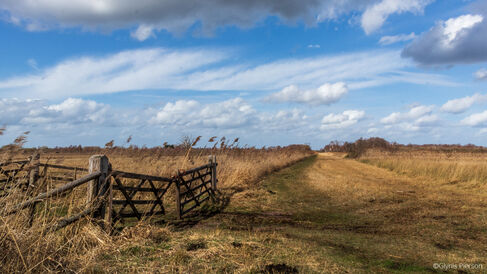The Fens

Photo of the Fens By Glynis Pierson
Supporting the Future of the Fens
A Crucial Agricultural Landscape
With nearly a quarter of all lowland peat in England and Wales, this region's drained peat yields some of the nation's most fertile soil. Half of England's Grade 1 farmland calls the Fens home, contributing to 22% of the country's crop output and an impressive 35% of its vegetable production. From lettuce to celery, carrots to leeks, and more, the Fens are a significant source of UK-grown produce.
Our Approach & Vision
To safeguard the Fens' ecosystem and support its farmers, the Centre's researchers are diligently working on an integrated framework. This framework seeks to harmonize food production, reduce carbon emissions, secure water resources, manage flood risk, enhance biodiversity, and foster resilience.
The Fens need to be future-proofed against climate change. How can we farm this land sustainably – managing water, restoring biodiversity and reducing carbon emissions – while maintaining its vital role in feeding the UK?
– Professor Emily Shuckburgh, Centre for Landscape Regeneration
With concerted efforts and innovative strategies, we can protect the vitality of the Fenlands, ensuring a prosperous and sustainable future for this irreplaceable region.
Supporting the Future of the Fens addresses the pressing environmental challenges facing the Cambridgeshire Fens, a region of highly fertile peat soils. We work with farmers, conservationists, and policymakers to balance sustainable food production with biodiversity recovery, carbon management, and water security. Through research, stakeholder engagement, and practical tools, the project helps secure a resilient, productive, and ecologically healthy Fenland landscape for the future.
Economic Importance & Environmental Challenges
Beyond their agricultural prowess, the Fens are instrumental in bolstering the rural economy, generating over £3 billion and offering employment to tens of thousands in a region grappling with unemployment and deprivation.
Yet, amidst these achievements, the Fens face environmental challenges that demand urgent attention. The region has lost a staggering 30% of its peatlands, releasing millions of tonnes of carbon into the atmosphere. Additionally, only 1% of its original wetlands remain intact. Water scarcity looms on the horizon, projected to become critical in 5 to 10 years, while rising sea levels pose a growing threat.
Finding a sustainable solution is paramount. Simply rewilding the Fens to preserve its ecosystem isn't feasible, given its crucial role in both the local community and the entire UK's food production.
Creative and Educational Engagements
The Centre supports innovative projects that connect communities with the Fens' unique environment. We funded an interactive exhibition showcasing children's creative explorations in collaboration with local schools. This project, The World Beneath Our Feet, brought together archaeologists, fungi researchers, and artists to inspire new perspectives on the natural world.
Similarly, our Museum of Zoology outreach programme engaged over 240 pupils from Cambridgeshire schools. Students explored local wildlife, collaborated on artwork, and contributed to exhibitions that attracted thousands of visitors, fostering curiosity and environmental stewardship from a young age.
Building on this, the Eels in the Classroom project (Spring 2025) brought living ecology into Fenland schools. Pupils cared for baby European eels (elvers) in classroom tanks before releasing them into the River Great Ouse, learning about river systems, species conservation, and the challenges facing this critically endangered fish.
Learn more about our broader work here.
Research and Land Management
In 2024, the Centre conducted the Fens Land Management Survey across 72 landholdings. The study gathered detailed data on farming practices, revenues, and employment, providing insights into sustainable land use and the interplay between agriculture, economy, and ecology.
Our work also addresses climate change impacts in the region. The article Turning Source to Sink explores how peatland management in the Fens can balance carbon storage with agricultural productivity, highlighting the urgent need for innovative, practical solutions.
Collaborative Conservation Efforts
The Fenland Conservation Network brings together farmers, reserve managers, and landowners to share knowledge on managing wetlands for biodiversity. Site visits and discussions help combine scientific evidence with local experience, strengthening conservation practices across the region.
Looking Ahead
By combining research, practical initiatives, and collaboration with local communities, we are working to ensure the Fens remain a productive, resilient, and ecologically vibrant landscape. Continued support and engagement will be key to safeguarding this unique region for generations to come.
